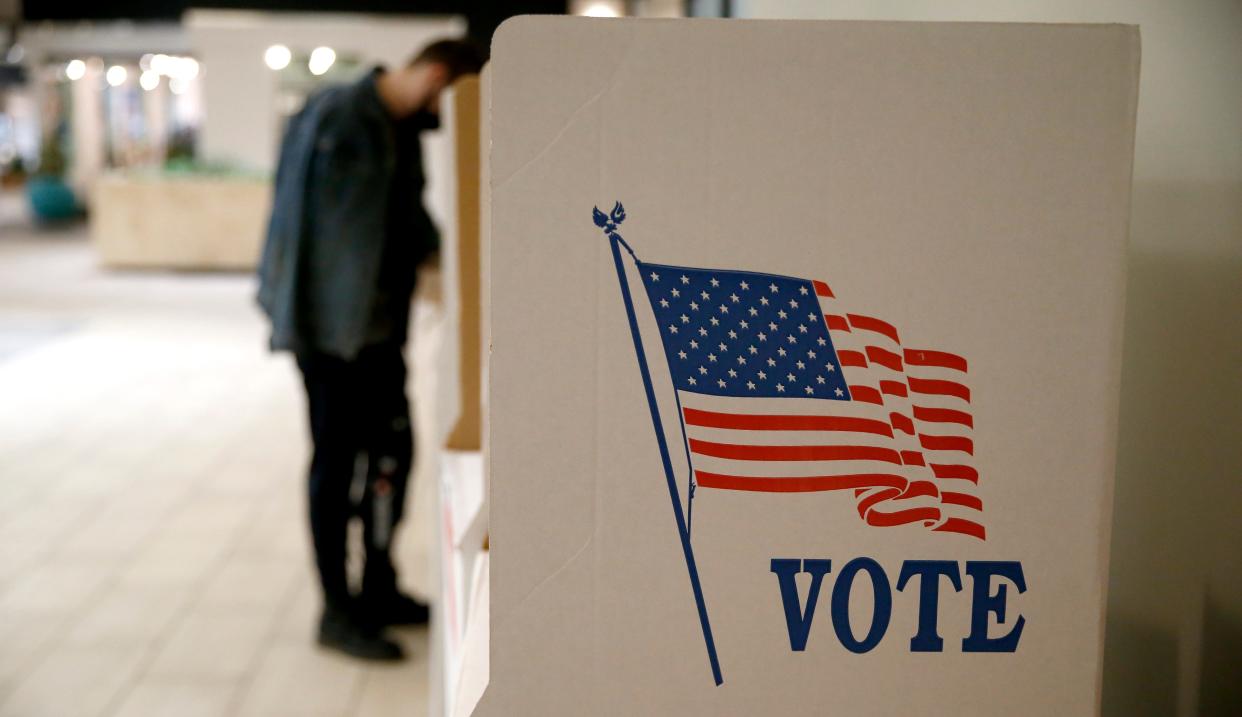Could Oklahoma turn to ranked choice voting? It would be expensive, elections chief says

Implementing ranked choice voting in Oklahoma could cost tens of millions of dollars because state elections equipment and software are not compatible with the voting method, the head of the Oklahoma State Election Board told lawmakers.
Election Board Secretary Paul Ziriax advised lawmakers on Tuesday to be judicious when making election changes as some grassroots groups push for ranked choice voting and some conservatives look to ban the election method.
“I would urge extreme caution to the Legislature if you’re going to consider this as a voting system to be used in the state of Oklahoma,” he said.
Five GOP state lawmakers hosted an interim study on ranked choice voting to explore the election method that has been implemented in Alaska and Maine. In ranked choice elections, voters rank the candidates in each race, as opposed to selecting just one candidate.
More: Several Republicans expected to run in special election for Edmond-area House seat
Lawmakers use interim studies as a chance to dig into topics on which they might write legislation.
The American Legislative Exchange Council, a conservative group that writes model legislation for state legislators, is encouraging members this year to introduce legislation that would ban ranked choice voting in state and local elections. ALEC says ranked choice voting is a complicated concept being pushed by special interest groups.
How much would it cost to switch to ranked choice voting in Oklahoma?
Ziriax said Oklahoma would have to purchase new voting machines, ballot scanners and software — a cost he estimated in the tens of millions of dollars — to implement ranked choice voting. The state will have to purchase new voting equipment within about five years anyways because the current machines are over a decade old, he said.
Cindy Alexander, an official with Rank the Vote Oklahoma, said ranked choice voting could save the state money in the long term by eliminating the need for runoff primary elections.
In a ranked choice system, candidates also would have to clinch a majority of the vote to win, she said. In Oklahoma, it’s not unusual for a candidate to win a general election with less than 50% of the vote if there are more than two candidates on the ballot.
Ziriax said he couldn’t speculate on the net fiscal impact of ranked choice voting over time.
More: GOP candidate for president wants Trump disqualified from Oklahoma ballots
He also expressed concerns that the system could be confusing for voters.
Republican Rep. Denise Crosswhite Hader, R-Piedmont, who led the interim study, said she wanted to hear from people on both sides of the ranked choice voting debate. But she expressed concerns about changing Oklahoma’s voting method, particularly to a system that might take longer for the public to get election results.
“I very much like the system that we have, especially with our paper ballots and the fact that we get elections completed that night,” she said.
Crosswhite Hader said she had not seen ALEC’s model bill to ban ranked choice voting.
Oklahoma Voice is part of States Newsroom, a nonprofit news network supported by grants and a coalition of donors as a 501c(3) public charity. Oklahoma Voice maintains editorial independence. Contact Editor Janelle Stecklein for questions: info@oklahomavoice.com. Follow Oklahoma Voice on Facebook and Twitter.
This article originally appeared on Oklahoman: Oklahoma elections: Ranked choice voting would be tough, election chief says

